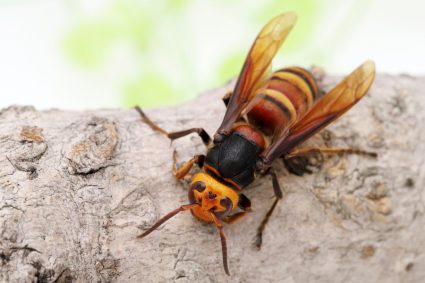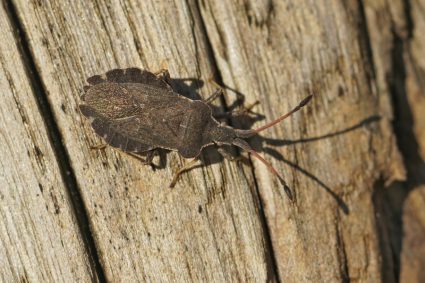
Fruit trees are a wonderful addition to any garden, providing not only fresh produce but also an aesthetic appeal. Unfortunately, they can also attract unwelcome visitors such as rats. These small creatures can cause significant damage to your harvest and, if not controlled, can become a major nuisance. In this comprehensive guide, we’ll explore various strategies and methods on how to keep rats out of fruit trees.
To keep rats out of fruit trees, prune and trim branches to isolate the trees, install metal guards around the trunk, use natural repellents like peppermint oil, cayenne pepper, and garlic, clean up fallen fruit regularly, and ensure there is enough space between trees. For severe infestations, consider professional pest control.
Recognizing the Signs of Rats in Your Fruit Trees
The first step in dealing with rat infestations is recognizing the signs. Rats often eat the pulp from fruits like oranges, leaving empty rinds hanging on the tree. They also create circular holes in fruits like watermelons, cantaloupes, and papayas, hollowing them out. Other signs include large sections of fruits eaten away and missing fruits. Black, banana-shaped droppings about 1/4-1/2 inch long (about 1 cm) can be a sign of rat presence, as well as dark smears or rub marks along the rat’s travel routes.
Effective Methods to Prevent Rats from Climbing Fruit Trees
There are several effective methods to prevent rats from climbing fruit trees:
- Prune and trim branches: Keep the trees isolated and avoid branches touching fences, overhead wires, or other trees. Ensure lower branches do not touch the ground, as this provides easy access for rats.
- Install metal guards: Place metal guards around the trunk of the tree, at least 2 feet off the ground, to prevent rats from climbing up the trunk. Make sure the guards do not touch any other structures, as rats can use these as alternative access routes.
- Use natural repellents: Peppermint oil, cayenne pepper, and garlic are effective rat repellents. Sprinkle these around the base of the tree or spray them on the trunk and branches to deter rats.
- Clean up fallen fruit: Regularly remove fallen fruit from the ground, as it provides a food source for rats. Dispose of the fruit in a sealed container to prevent rats from accessing it.
- Space out trees: Ensure there is enough space between trees to prevent rats from easily moving between them. If tree branches are touching each other, rats can easily climb and run from one tree to the next.
Natural Remedies to Deter Rats
For those who prefer a more natural approach, there are several homemade remedies to deter rats:
- Use bird netting: Cover the fruit trees with bird netting to prevent rats from accessing the fruits.
- Encourage natural predators: Attract rat predators, such as rat snakes, to your garden to help control the rat population.
- Apply natural repellents: Rats are repelled by strong scents, so you can use essential oils like peppermint or eucalyptus oil, or even fabric softener sheets, on cotton balls and place them in areas where rats may enter your home.
Common Mistakes to Avoid
When trying to keep rats out of fruit trees, people often make several common mistakes:
- Not pruning the trees properly: Rats can easily access fruit trees if their branches are touching other trees, fences, wires, or buildings. Pruning the trees to maintain a 2-3 feet distance from other objects can help prevent rats from climbing onto the fruit trees.
- Failing to remove fallen fruit: Leaving fallen fruit on the ground can attract rats and other pests. It is essential to remove fallen fruit immediately to reduce the chances of rats climbing the trees in search of more food.
- Using ineffective netting: While netting can be useful for protecting fruit trees from some animals, it may not be effective against rats. Rats can gnaw through plastic netting, and birds can peck through openings in the net. It is important to use the appropriate type of netting or consider other methods to protect fruit trees.
The Role of Professional Pest Control
In cases of severe rat infestations, professional pest control can be a viable solution. Pest control specialists have the expertise and experience to deal with rat infestations effectively and efficiently. They can customize a plan for rodent removal and ongoing protection based on their inspection findings.
In conclusion, keeping rats out of fruit trees requires a multi-faceted approach that includes regular tree maintenance, the use of natural repellents, and, in severe cases, professional pest control. By implementing these strategies, you can protect your fruit trees and enjoy a bountiful harvest.
Frequently Asked Questions
How often should I prune my fruit trees to keep rats away?
The frequency of pruning can depend on the type of fruit tree, but generally, it’s recommended to prune your trees at least once a year during the dormant season (late winter or early spring). However, if you notice branches touching other objects, providing access for rats, you should prune immediately.
Can I use any type of metal for the tree guards?
Yes, you can use any type of metal for the tree guards as long as it’s smooth and slippery, preventing rats from gaining a grip. Common choices include sheet metal or even aluminum flashing.
Where can I buy natural rat repellents?
Natural rat repellents like peppermint oil, cayenne pepper, and garlic can be found at most grocery stores or online marketplaces. Ensure to buy pure, high-quality products for the best results.
Will bird netting harm the birds?
No, bird netting is designed to deter birds and other pests without causing harm. It’s made from lightweight, flexible materials that birds can’t break through but also won’t injure them.
How do I attract natural predators to my garden?
You can attract natural predators like rat snakes by providing a suitable habitat for them. This can include piles of rocks or logs, which snakes can use for shelter. However, remember to consider whether inviting these predators into your yard is safe for your family and pets.
How do I know when it’s time to call a professional pest control service?
If you’ve tried multiple strategies and the rat infestation continues, or if you’re dealing with a large-scale infestation, it might be time to call a professional. Signs of a severe problem can include seeing rats during the day, hearing them in your walls or ceilings, or finding large amounts of droppings or damage to your trees.








